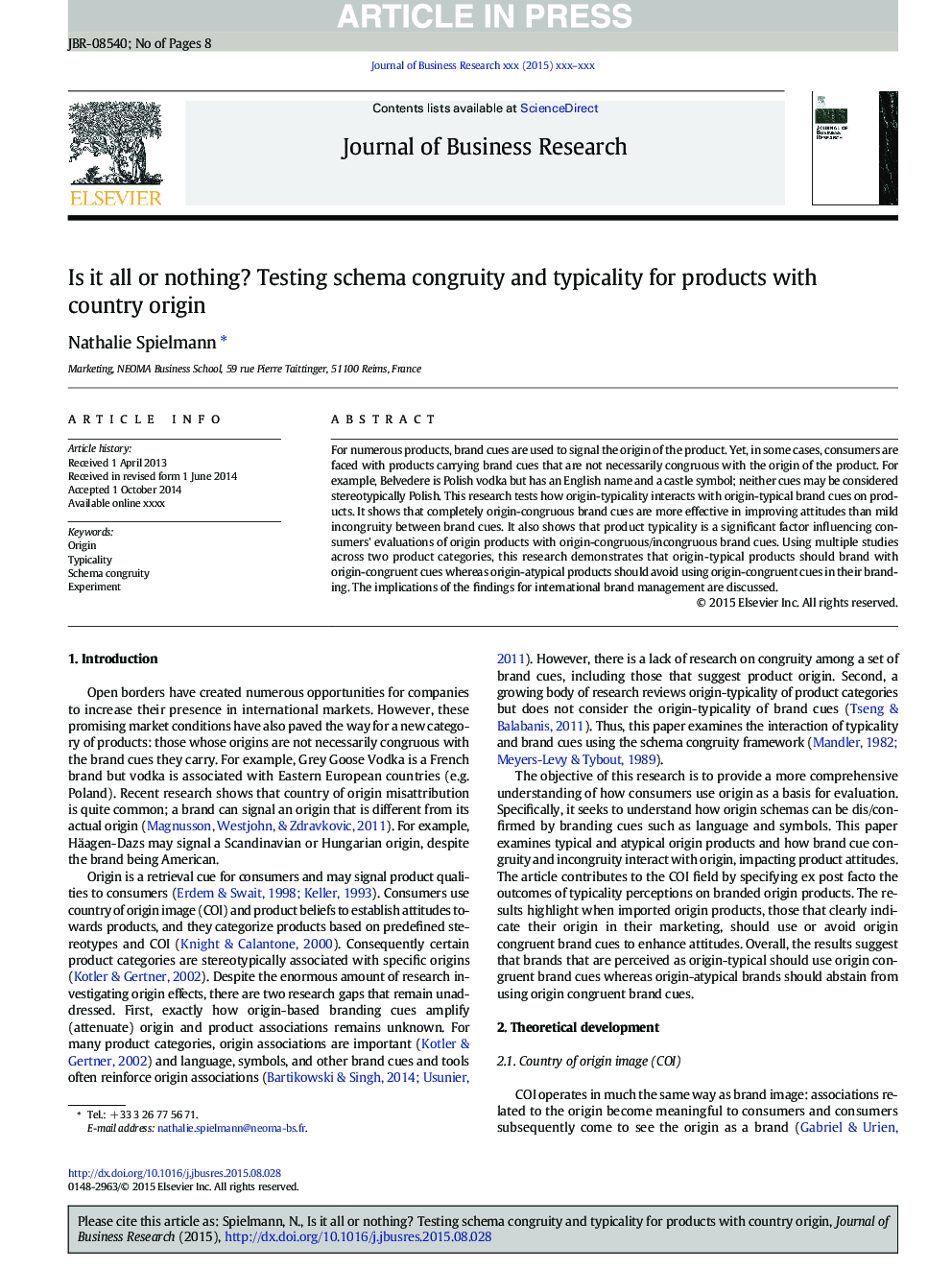| Article ID | Journal | Published Year | Pages | File Type |
|---|---|---|---|---|
| 10492718 | Journal of Business Research | 2016 | 8 Pages |
Abstract
For numerous products, brand cues are used to signal the origin of the product. Yet, in some cases, consumers are faced with products carrying brand cues that are not necessarily congruous with the origin of the product. For example, Belvedere is Polish vodka but has an English name and a castle symbol; neither cues may be considered stereotypically Polish. This research tests how origin-typicality interacts with origin-typical brand cues on products. It shows that completely origin-congruous brand cues are more effective in improving attitudes than mild incongruity between brand cues. It also shows that product typicality is a significant factor influencing consumers' evaluations of origin products with origin-congruous/incongruous brand cues. Using multiple studies across two product categories, this research demonstrates that origin-typical products should brand with origin-congruent cues whereas origin-atypical products should avoid using origin-congruent cues in their branding. The implications of the findings for international brand management are discussed.
Keywords
Related Topics
Social Sciences and Humanities
Business, Management and Accounting
Business and International Management
Authors
Nathalie Spielmann,
